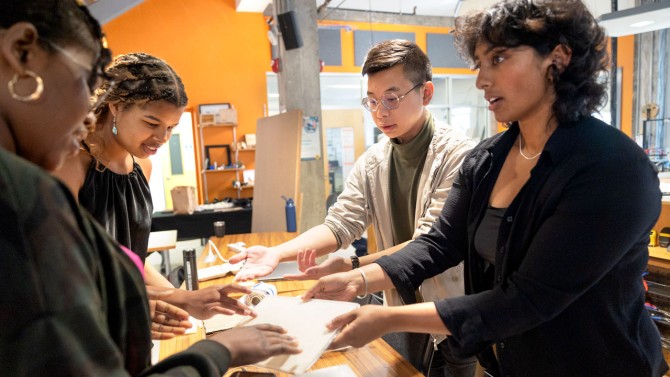
Rev: Ithaca Startup Works puts new entrepreneurs through their paces
Inventing a new product that you can hold in your hands and bring successfully to an eagerly awaiting market is sometimes likened to childbirth: If we knew from the outset how hard it was going to be, fewer of us would do it.
Over 10 weeks this summer, Rev’s Prototyping Hardware Accelerator guided product teams from back-of-the-napkin ideas to fully-fledged startups. In categories from climate technology to agricultural innovations, and with projects that range from canoe racing tools to improved tea dispensers, teams gained access to experts in their industry’s field, working together to figure out if their concept might be commercially desirable, technologically feasible and economically viable.

The program culminates in a free public Hardware Demo Day Aug. 1, where each team has the chance to demonstrate its progress and pitch its product to community members as well as potential investors and partners. Tickets can be reserved here.
This year’s 22 teams are the most diverse yet, said Ken Rother, director of Rev: Ithaca Startup Works, with about half students and half professionals, and with a significant number of female founders and many participants with only a tangential connection to Cornell.
“I stumbled across Rev on LinkedIn,” said AnalytiTech co-founder Christopher Cilip, who grew up in Corning, New York, and has worked in deep-learning camera systems. For Bryan Wong, Pooja Patel and Sanjana Gurram, the team behind EquiPad, a sustainably designed disposable menstrual pad alternative, their connection was forged in a University of California, Berkeley course on taking plastics out of the supply chain.
But what unifies this year’s teams is a deep desire to fix a problem, right a wrong or make elegant solutions equitably accessible. It’s personal.
